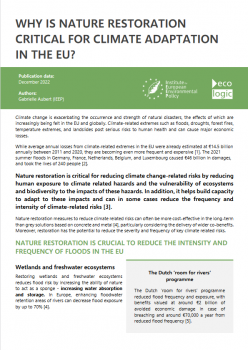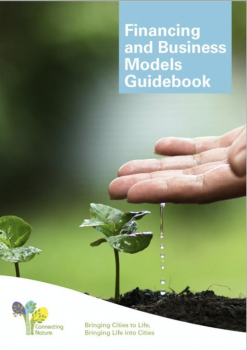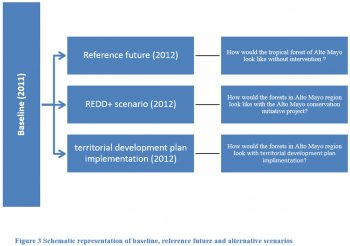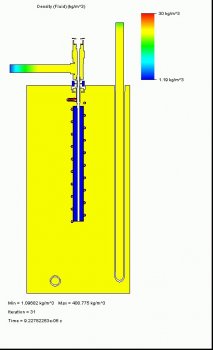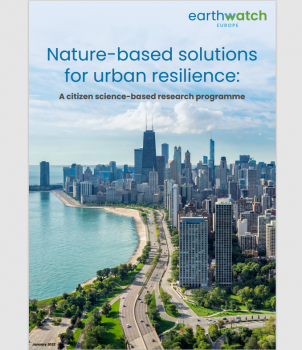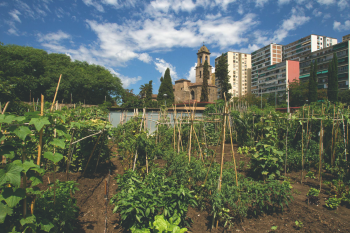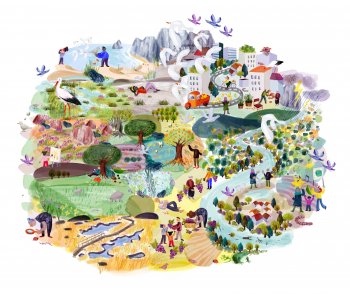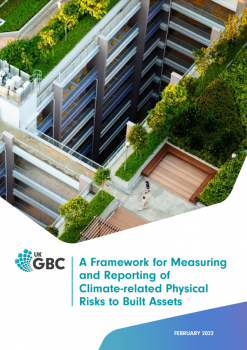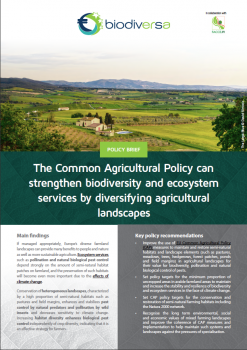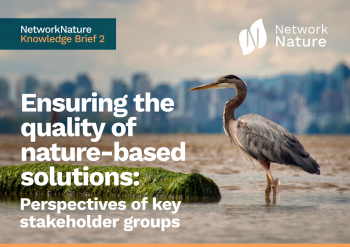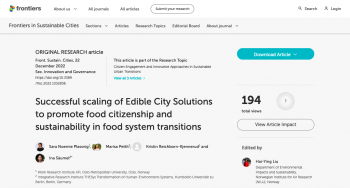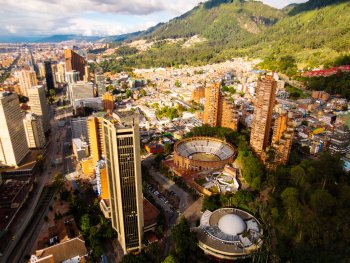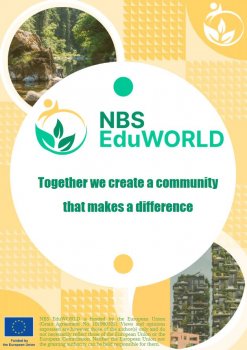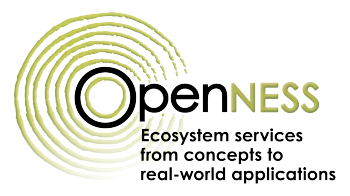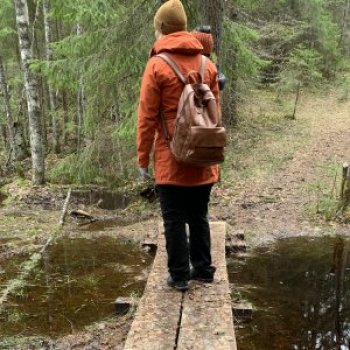Marketplace
Why is nature restoration critical for climate adaptation in the EU?
Nature restoration is critical for reducing climate change-related risks by reducing human exposure to climate related hazards and the vulnerability of ecosystems and biodiversity to the impacts of these hazards. In addition, it helps build capacity to adapt to these impacts and can in some cases
State of the Art and Latest Advances in Exploring Business Models for Nature-Based Solutions
Nature-based solutions (NbS) offer multiple solutions to urban challenges simultaneously, but realising funding for NbS remains a challenge. When the concept of NbS for societal challenges was first defined by the EC in 2017, financing was recognised as one of the major challenges to its
- Document
Assessment of the drudgery of work during the planting phase
Plantation management methods that meet the social and environmental expectations : identifying the phases of work carried out and to assess the arduousness of each of them, in order to target possible recommendations
Financing and Business Models Guidebook
This guidebook introduces the topic of financing and business models for nature-based solutions, identifies some common challenges and enablers to financing and presents a step-by-step guide to securing financing.
Quantifying the effects of different management scenarios on ecosystem services and livelihoods in San Martín, Peru
Peru is the second-largest country in Latin America in terms of forest area, and hosts ecosystems of high biodiversity value, large protected areas, ever-changing landscape mosaics with dynamic ecosystem transitions, and many indigenous communities and cultures. Although it is considered a country
Particle Capturing, Equipment
The particle Capturing Equipment is designed to block into it the particles and to release clean Air. The technic used is able to capture pullants and to generate clean Air . So , the possible solution is to capture the Air partciples and to release clean Air to urban area and to directs the
Report: Nature-based solutions for urban resilience: A citizen science-based research programme
This report by Earthwatch Europe shows how urban Nature-based Solutions (NbS) are a sustainable tool for building resilient cities. The report highlights how science and community engagement can provide key answers to support a sustainable future, providing the first insights for planners,
Conexus Life-Lab factsheet series - Urban Agriculture Observatory: Social and Ecosystem services
The Urban Agriculture Observatory is a partnership aiming to establish a database of environmental and social aspects of urban allotments and their benefits. Based on the database, a public web platform is created to share collected data and bring urban agriculture closer to citizens. It is
NetworkNature Visualisation: EU-Funded Nature-based solutions research projects addressing Societal Challenges across Ecosystems
In this document you can find a visual representation of the different types of ecosystems and most relevant societal challenges in the context of NbS, with the aim to simplify and communicate these concepts, while inspiring NbS good practices. || The European Commission defines Nature-
A Framework for Measuring and Reporting of Climate-related Physical Risks to Built Assets
In August 2021, UKGBC launched the Measuring and Reporting Climate-related Physical Risks task group in response to the upcoming mandatory disclosure of climate-related risks. For large organisations and financial institutions within the UK, this comes into force from April 2022 in line with the
Economics of Peatlands Conservation, Restoration and Sustainable Management
Less than 3% of the Earth’s surface is covered by peatlands but they are the largest terrestrial organic carbon stock. Indeed, peatlands are capable to store twice as much carbon as in the world’s forests. Despite their potential, globally, peatlands are in decline with 11-15% of these ecosystems
The Common Agricultural Policy can strengthen biodiversity and ecosystem services by diversifying agricultural landscapes
“The Common Agricultural Policy can strengthen biodiversity and ecosystem services by diversifying agricultural landscapes” is based on the combined results of the FARMLAND, APPEAL, CONNECT, EC21C and ECODEAL projects, funded by BiodivERsA and FACCE-JPI. This 4-page brief presents key
- Document
Carbon accounting for PES
The economic aspect of sustainable forest management is crucial for preserving rural areas, highlighting the need to develop methods for quantifying its ecosystem services.
NetworkNature Knowledge Brief 2: Ensuring the quality of nature-based solutions - perspectives of key stakeholder groups
This Knowledge Brief produced by NetworkNature aims to explore and analyse different perspectives and perceptions of high-quality nature-based solutions (NbS). The brief provides an overview from key stakeholder groups and draws recommendations for practitioners and policy-makers on how to ensure
Successful scaling of Edible City Solutions to promote food citizenship and sustainability in food system transitions
Sustainable, productive and biodiversity-friendly urban landscapes are a strategic step in transitioning to future-proof, liveable and healthy cities Edible nature-based solutions, otherwise known as “Edible City Solutions”, comprise a wide range of different forms of sustainable urban food
CONEXUS: Skills Gaps for Naturebased Solutions uptake in Europe and Latin America
Skill gaps hindering the implementation of Nature-based Solutions (NbS) are often pointed out as a challenge to larger scale NbS uptake. This factsheet presents the findings and key messages of an explorative study on skills and competence gaps among NbS professionals. Moreover, it introduces the
D5.1: Report on comparative analysis of economic valuation models
Findings are presented from an investigation of nature-based solutions (NBS) research and case studies examining how projects address ‘co-benefits’, and particularly, their coverage of economic impacts.
NBS EduWORLD booklet: The School as NBS Living Lab
The NBS Living Labs create the right conditions to integrate actions that promote skills development and sustainability education, to innovate and open the schools to society.
OpenNESS Synthesis paper: Nature-based solutions
The idea of 'nature-based solutions' (NbS) is now being used to reframe policy debates on biodiversity conservation, climate change adaptation and mitigation strategies, and the sustainable use of natural resources, among other issues. While interesting and potentially useful for those
The importance of protecting human health in the EU climate policies
As anthropogenic climate change continues to escalate, its detrimental efects on human health are becoming pronounced, demanding urgent transformative actions from European policymakers. This policy brief underscores the importance of protecting human health in the EU climate change policies. As
- ‹ previous
- 12 of 45
- next ›

